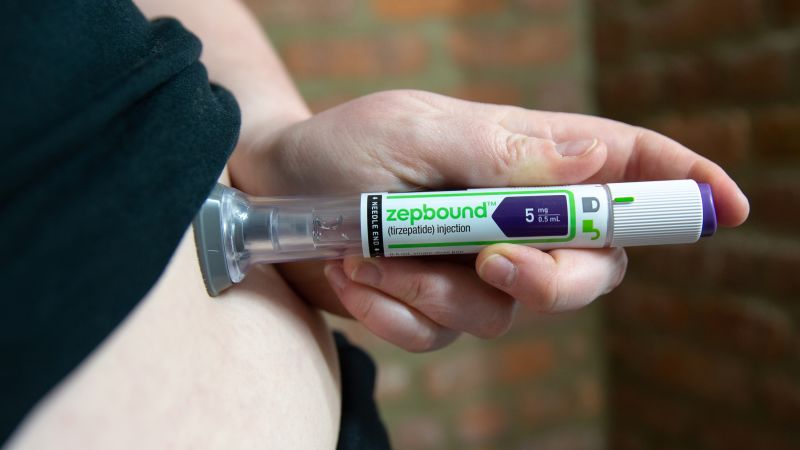In a recent appointment, Tara Eacobacci faced a disheartening reality as she learned about significant alterations to her health insurance coverage, particularly concerning the prescription benefits that she relied upon for managing her weight. Following a long and arduous journey through various trials and treatments, Eacobacci had found success with Zepbound, a medication that had dramatically improved her weight management. However, with the recent decision by CVS Caremark, a prominent pharmacy benefit manager, her insurance would no longer cover Zepbound effective July 1, 2025. The abrupt change has left her feeling outraged, frustrated, and anxious about the future of her health.
CVS Caremark justified the exclusion of Zepbound from its coverage plan by stating that there are alternatives, like Wegovy, which is another GLP-1 medication that is still covered. Wegovy is produced by Novo Nordisk and has been known to offer slightly lesser efficacy compared to Zepbound for some patients. CVS’ decision was presented as a means to compel pharmaceutical companies to engage in price competition, suggesting that this would ultimately benefit patients by reducing costs. However, many patients and healthcare providers are troubled by this narrative, arguing that it overlooks the individual needs and responses of patients in real-world scenarios.
The implications of these coverage changes are profound, affecting approximately 25 to 30 million individuals included in CVS Caremark’s most common formulary template. Many users of weight-loss drugs tend to switch between medications like Zepbound and Wegovy in roughly equal numbers, according to CVS Health. This constant shifting, however, often runs contrary to the notion that such changes can easily be made without impacting the patient’s treatment and development. The diverse responses to weight-loss medications are complex, with each patient requiring a tailored approach that can take time to establish effectively.
Dr. Jody Dushay, an endocrinologist at Beth Israel Deaconess Medical Center and a Harvard Medical School assistant professor, emphasized the chaotic reality of managing obesity treatment. Switching medications can disrupt patients’ progress and add significant emotional and physical tolls. She highlighted that her patients often experience heightened stress levels due to these insurance changes and the burden of navigating the health system. For many of her patients, their mental well-being is as impacted as their physical health.
Moreover, professionals like Dr. Dushay express concern over the trial-and-error approach that is compounded by the barriers posed by insurance coverage. The excessive focus on stringent insurance requirements often prevents doctors from focusing on what’s most critical – patients’ health and their need for care. Insurance-modulated healthcare decisions complicate treatment pathways and divert attention away from vital discussions pertaining to the patient’s experience and health management.
The sentiment of urgency in addressing obesity as a chronic condition is echoed by experts like Dr. Tracy Zvenyach, advocating for a change in perceptions surrounding the disease. There exists a societal tendency to undervalue the long-term challenges of obesity, which can lead to dismissive policies in treatment accessibility. The forthcoming exclusion of GLP-1 medications for obesity by BCBS Massachusetts, effective next January, exemplifies the restrictive approach that still plagues the healthcare system. Hence, patients are often left grappling with the ramifications of these decisions without adequate avenues for recourse.
Despite the looming challenges, there are avenues for patients who find themselves without coverage for Zepbound. Eli Lilly, the maker of Zepbound, has initiated the LillyDirect platform to facilitate access for patients in need. Through this platform, individuals can arrange for telehealth services and manage prescriptions on a cash-pay basis, with the monthly cost set at $499 for single-dose vials.
In conclusion, the complex relationship between healthcare financing, insurance policies, and the plight of patients seeking effective treatment underscores a critical issue in contemporary medicine. Tara Eacobacci’s experience exemplifies the significant healthcare barriers faced by individuals managing chronic diseases. As the healthcare landscape evolves, there is an urgent need to balance economic realities with the genuine healthcare needs and psychological well-being of patients. The journey toward effective obesity management should be informed by science and empathy, rather than dictated solely by cost justifications or market competition strategies.












